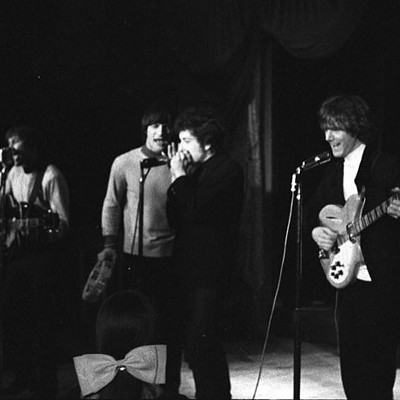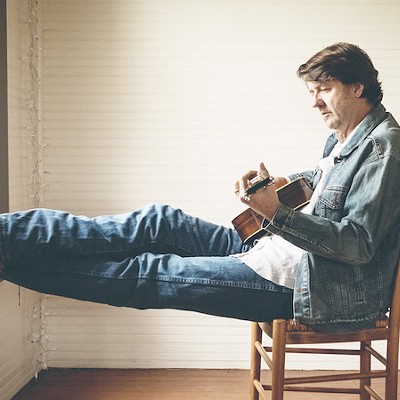That Pitchfork chieftains Scott Plagenhof and Ryan Schreiber chose that year is both telling and utterly predictable. Anyone familiar with the Web site knows its authors believe popular music was born that year, with the Velvet Underground serving as damn-near lone voice of cool in the wildernesses of hippiedom and dad-rock that came before.
You won’t be surprised to learn that there’s no country or Latin music in here, nor anything rooted in any tradition that dates beyond that all-important first year of the Carter Administration when disco, indie and punk Changed Everything Forever and Ever.
Another Pitchfork hero, Giorgio Moroder, is mentioned in the intro to the first chapter. He comes in where co-editor Plagenhoef is touting disco as a parallel to punk in black music; one that “cast aside supper-club soul and, increasingly, acid-fried funk and return[ed] soul to a more crucial, popular sound."
With white people, maybe. In fact, disco came about when the likes of Moroder discovered that if you accented each beat of a 4/4 time signature with a booming bass hit – just like they do in polka bands – Swedish and Dutch girls could dance again. P-Funk had left ‘em scratching their heads in the discos of Berlin and Ibiza, and with the beat dumbed down Munich beerhall-style, the floors filled again.
A pity that none of them made The Pitchfork 500 cut, nor did anything by K.C. and the Sunshine Band or the freaking Bee Gees. All of that is swept aside and replaced by these representations of disco: Donna Summer's “I Feel Love,” Thelma Houston’s “Don’t Leave Me This Way,” Moroder’s “The Chase” and Chic’s “Good Times.”
Also everything Rick James, the Gap Band, the Dazz Band and Chaka Khan and Teena Marie released…and as for names lesser known but no less bright lights such as Lakeside, the Meters and Johnny “Guitar” Watson, forget it.
Funk was black guy dad-rock. And there’s nothing Pitchfork hates more than dad-rock, so anything you’ve ever heard in heavy rotation on classic-rock radio, it probably won’t be in here. So no Pink Floyd (okay, their best work was just behind them by '77), nothing from Zeppelin’s In Through the Out Door, no Queen (unless it’s with demi-god David Bowie), no Stevie Ray Vaughan, no Eagles, no Stones (still putting out albums like Some Girls, Emotional Rescue, and Tattoo You), no ZZ Top, no Elton John…
The Pitchfork school of criticism has always relied more on trendy perceptions than actual musical merit and song structure, which brings us back to the classic-rock thing. They do enshrine some: forwardly-dual-gendered Fleetwood Mac, the (forwardly electro) Cars, Cheap Trick, a few lesser hits by Bruce Springsteen, and Journey’s “Don’t Stop Believing,” Van Halen’s “Running with the Devil,” and “Don’t Fear the Reaper,” all of which they're probably being ironic with. I don’t know how to explain why they included Don Henley’s “Boys of Summer,” other than to agree that it is a great song, co-written by Mike Campbell of Tom Petty’s Heartbreakers.
Sure, there are a couple hundred worthy choices in here, too many of them in the would-be snarky sidebars that dot the pages than I’m sure the editors intended. But I’m predicting that in ten years, nobody will remember the geniuses behind about 300 of these "great" songs of the last 32 years.
If you’re looking for a singles-based guide of much better musical quality and usefulness, pick up a copy of Sarah “Ultragrrl” Lewitinn’s playlist-based The Pocket DJ instead. - John Nova Lomax
Fireside Books, 208pp., $16






